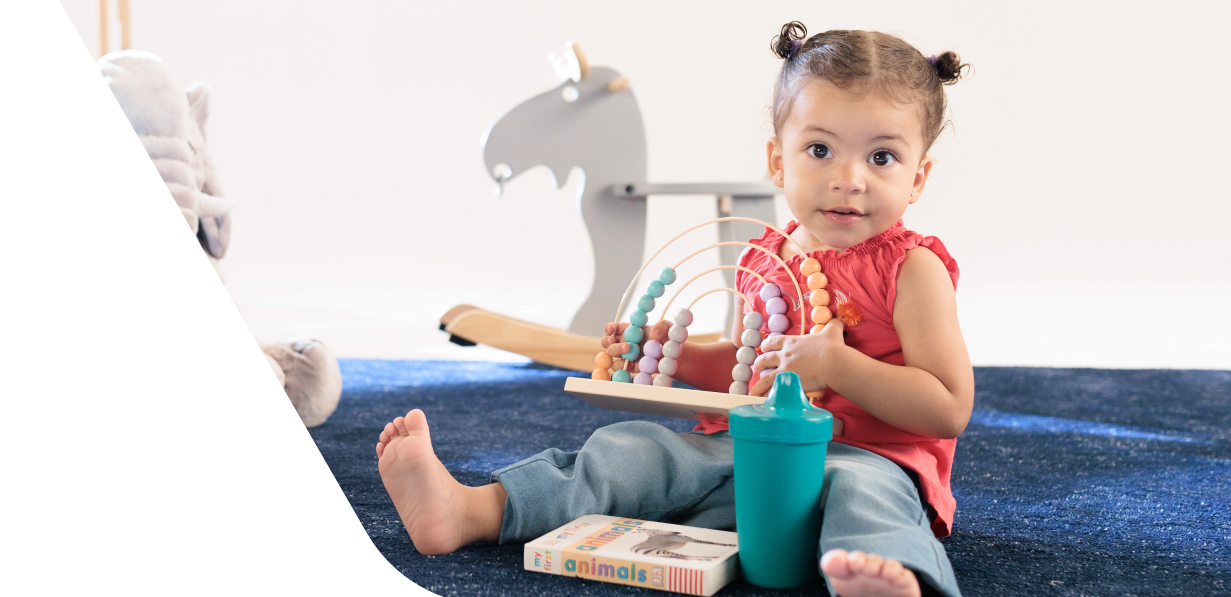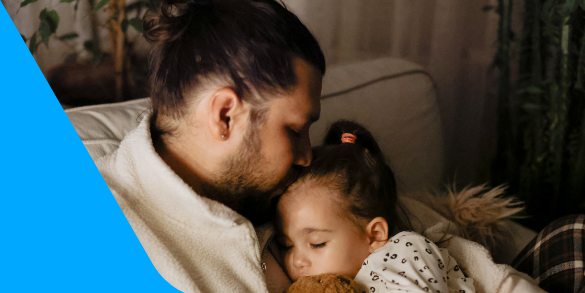Communication and Social Development
Your baby's verbal skills continue to progress, however, as children concentrate on other milestones (such as walking), their language development may slow down slightly. His vocabulary is highly variable at this stage: he may utter his first words at 12 months and be able to say five words or more by 15 months. He may understand the meaning of as many as 70 words. At approximately 18 months, there is a spurt in spoken language that often includes self-related words such as "me" and "mine" and "no!" when he's upset. Sentences may increase to two, three, or four words, such as "You go." "Me want juice." "No wanna go car!" and vocabulary may extend to 20 words.
Help him along with concise, easy-to-follow language accompanied by gestures. For example, use short sentences and simple language ("big bus", "nice cat"). Use gestures, as in shaking your head when you say “no”. Present one idea at a time, such as “Shoes on” while pointing at his feet. If you ask too much at once (i.e. “Put on your shoes, coat and hat”), he may not follow. Hold objects in front of your toddler and name them, then wait for your toddler to respond with a word, gesture or sound.
Encourage your child’s linguistic progression by taking his words and turning them into proper sentences. For example, a request for “milk!” turns into “You want more milk in your cup.” It will help him to expand his vocabulary and learn sentence structure. Play games that include simple directions, such as “Throw the ball to me.”
Between 12 – 15 months, your child will likely enjoy imitating your actions, such as talking on the phone or stirring a pot. Support your child’s burgeoning imagination with lots of pretend play: role playing, puppets, dolls, blocks, animal figures, and objects that he sees in “real life” such as play kitchen utensils, a toy telephone or a small dust broom.
Activities to Stimulate Toddler Development
Opportunities to support your toddler’s positive development are all around you. Take advantage of everyday tasks and events to help him learn and develop, all the while providing him with the best nutrition to nourish his milestone achievements.
Communication Development
Strong communication skills can be extremely advantageous as your child matures. Foster his language development right from the very beginning with these simple and enjoyable activities:
Talk him through an activity.
- Explain what you're doing as you do it. Speak clearly.
Let him see your face as you speak.
- This way he can watch how your mouth makes sounds.
Speak at his level.
- Don't use baby talk, or difficult words.
- Stress the syllables.
Listen to him.
- Build his confidence by showing him that what he says is important.
Encourage communication.
- Say the words for objects you see every day.
- Encourage him to say them back.
Don't point out mistakes.
- Instead, repeat the whole sentence saying the word correctly.
Read together every day.
- Early exposure to reading promotes strong reading skills in school-age children.
Read predictable books.
- Soon he'll be "reading" it by herself.
- Some good examples are: I Went Walking, The Very Hungry Caterpillar, Peanut Butter and Jelly, Little Red Hen, and Goodnight Moon.
Use the mirror.
- Let him make faces and name his body parts.
Explore his world.
- Walk around your neighbourhood.
- Talk about what you see.
Play with writing.
- If he's interested in pencils and paper, let him try.
Play object Hide-and-Seek.
- Hide a favourite toy and ask him to find it.
Play naming games.
- Point to familiar things and ask him to name them.
- Act out action words, like crawl, jump, or sleep.
Sing
- Introduce nursery rhymes, finger plays and counting rhymes. Listen to recordings.
- Play imitating games, like "This is The Way We Wash Our Face" or "I'm A Little Teapot."
Social Development
Positive reinforcement, encouragement and support are intrinsic to your child's healthy emotional and social development. Here are some ways to help nurture his emotional and social growth:
Spend time together.
- You are his favourite role model.
Establish a routine.
- He can find comfort and reassurance in the familiar, though you can vary it a little on special occasions.
Hold him when he's upset.
- Speak calmly and quietly until he feels better.
Encourage empathy.
- Share his emotions. Let him see you happy or sad when he is.
Be patient with regressive behaviour.
- Stay calm and try to understand its source.
- Encourage communication. Say the words for objects you see every day.
- Encourage him to say them back.
Read together every day.
- Start with predictable stories, so he can "read" them too.
- Incorporate them into your daily routine.
Use the mirror.
- Let him make faces and name his body parts.
Explore his world.
- Walk around your neighbourhood.
- Talk about what you see.
Share.
- Set a good example with snacks, toys or books.
Why is Nutrition Important?
Healthy eating is important as it provides the energy and nutrients needed for growth and development. Your toddler will benefit from a variety of wholesome foods each day as he advances his cognitive, linguistic and social abilities.








